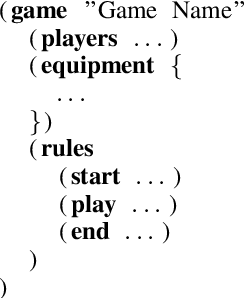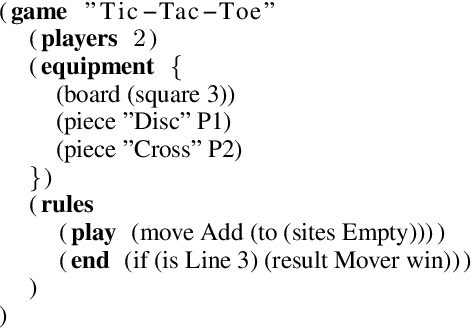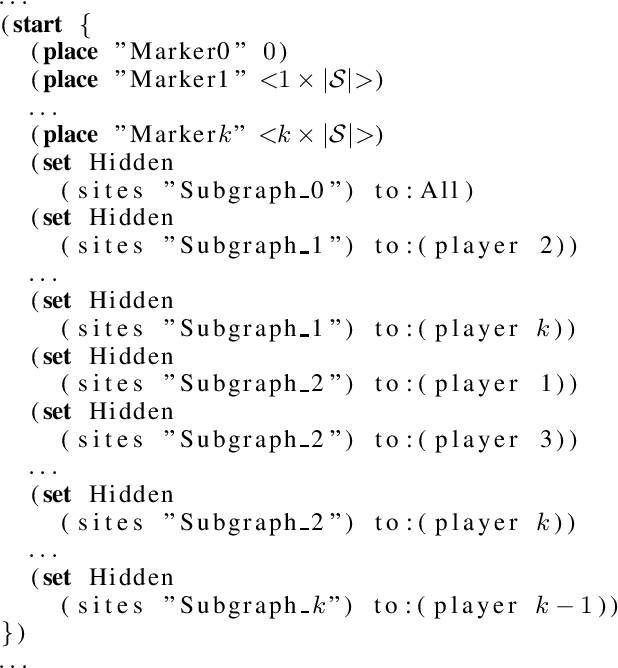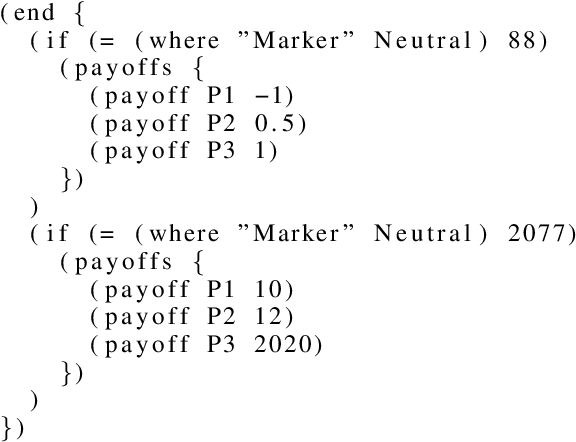The Ludii Game Description Language is Universal
Paper and Code
May 03, 2022



There are several different game description languages (GDLs), each intended to allow wide ranges of arbitrary games (i.e., general games) to be described in a single higher-level language than general-purpose programming languages. Games described in such formats can subsequently be presented as challenges for automated general game playing agents, which are expected to be capable of playing any arbitrary game described in such a language without prior knowledge about the games to be played. The language used by the Ludii general game system was previously shown to be capable of representing equivalent games for any arbitrary, finite, deterministic, fully observable extensive-form game. In this paper, we prove its universality by extending this to include finite non-deterministic and imperfect-information games.
 Add to Chrome
Add to Chrome Add to Firefox
Add to Firefox Add to Edge
Add to Edge